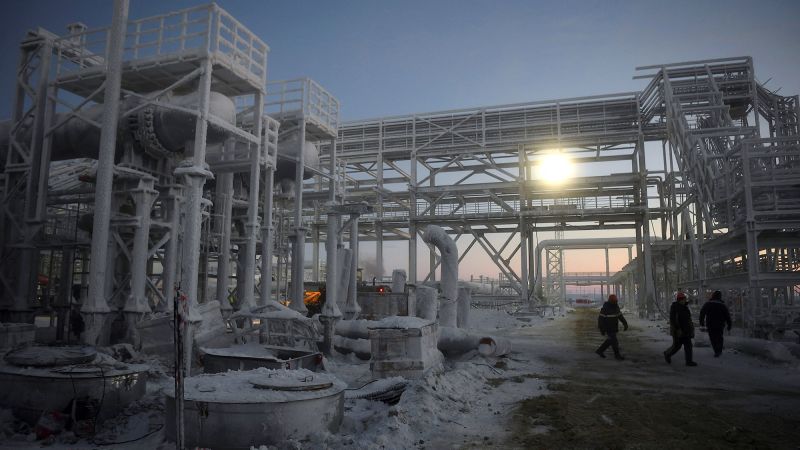The European Union (EU) is on the brink of implementing a comprehensive ban on all imports of Russian oil and natural gas, a significant move taking place more than three years after Russia initiated its unprovoked invasion of Ukraine. The geopolitical landscape has shifted dramatically since the onset of the conflict, and the EU’s new legislative proposal reflects a decisive step toward reducing dependence on Russian energy sources.
In an announcement made by the European Commission, which serves as the executive branch of the EU, a proposal was introduced on a Tuesday to gradually phase out the importation of Russian natural gas. This directive extends to both gas supplied through pipelines and liquefied natural gas (LNG) transported via tanker ships. The implementation of this proposal is structured with careful timelines, establishing that new import contracts will be prohibited starting next year. Additionally, imports under existing short-term contracts for most EU member states must be curtailed within a year, with a complete ban on purchases emerging from long-term contracts set to come into effect by the end of 2027.
European Commission President Ursula von der Leyen emphasized the necessity of this proposal, stating, “Russia has repeatedly attempted to blackmail us by weaponizing its energy supplies.” She highlighted that the EU is proactive in taking steps to sever ties with Russian fossil fuels, effectively marking an end to their era in Europe. The proposal’s specifics also indicate a targeted ban against Russian-owned or controlled entities from entering into long-term contracts for the EU’s LNG terminal services. This measure is designed to ensure that terminal capacity can be redirected towards alternative suppliers, promoting energy diversification within the bloc.
The measures outlined are equally applicable to oil imports, whereby member states still reliant on Russian crude oil are encouraged to devise plans to phase out these supplies completely by the conclusion of 2027. Notably, a report by the Centre for Research on Energy and Clean Air showcases that countries such as Hungary and Slovakia have persisted in importing Russian crude oil through pipelines as recently as last year, underscoring the complexities involved in transitioning away from Russian energy dependence.
The proposal complements the EU’s “REPowerEU” initiative, launched in May 2022 with the intent of eliminating the bloc’s dependency on Russian energy sources. Hungary and Slovakia, which have historically maintained more favorable stances toward Russia, threatened potential opposition to new sanctions. Yet, they ultimately supported previous measures. To navigate this situation, the European Commission purposely structured the new proposal on trade and energy legislation, circumventing potential obstruction by utilizing a qualified majority vote mechanism. This approach mandates that more than half of EU member states, collectively representing at least 65% of the EU population, must endorse the proposal for it to become law, bypassing the need for unanimous consent.
The EU has already seen significant reductions in Russian energy imports since the invasion of Ukraine in early 2022. According to official data, Russia’s share of the EU’s total natural gas imports plummeted from 45% in 2021 to just 19% last year. Similarly, concerns over oil dependency are evident, with Russian contributions to the EU’s total oil imports dwindling from 27% at the invasion’s outset to a mere 3% by 2024. This drastic shift underscores the EU’s unwavering commitment to altering its energy landscape.
With the backdrop of these proposed measures, the EU also unveiled a fresh package of sanctions against Russia—its 18th series of sanctions since the conflict began. This package is specifically crafted to further undermine the Kremlin’s financial capabilities stemming from its oil and gas operations. Von der Leyen articulated the rationale behind these sanctions: “because strength is the only language that Russia will understand.” The sanctions entail reducing the price cap on Russian oil exports from $60 to $45 per barrel, alongside introducing a total transaction ban on Russian banks and financial institutions in third nations that facilitate circumvention of existing sanctions.
However, the new package will require approval from all 27 EU member states, a process that may face challenges given Hungary and Slovakia’s prior reservations about placing further sanctions on Russia. This ongoing dialogue illustrates the broader complexities the EU faces as it transitions toward greater energy independence while navigating inter-member state dynamics.



